Duration: 33 minutes
Season 2
Episode 5
The benefits of a multigenerational workforce
Is the secret to embracing business change an all-age workforce? And what are the skills that Gen Z need to outpace AI? We get the answers with generational expert, historian, and business advisor, Dr. Eliza Filby.
Plus, we talk declining attention spans and their effect on training, whether age-based stereotypes hold any truth, and why we need to rehumanize ourselves at work.

Key takeaways:
It’s essential to bridge generational gaps in the workplace. To do so, it’s necessary to encourage mutual learning and respect between younger and older employees. Companies should focus on knowledge sharing so that different generations can learn from each other.
Stereotypes about different generations need to be reconsidered. Companies should focus more on understanding the cultural and technological contexts that shape each generation’s approach to work.
The traditional career ladder is being replaced by a more flexible and individualized approach to work. This shift acknowledges the evolving life stages of people and the importance of balancing home and work life. Ultimately, it leads to people choosing more personalized career journeys.
As AI becomes more integrated into the workplace, soft skills will become increasingly important. These skills are necessary for maintaining human relationships and ensuring that AI tools are used the right way. Also, older generations may be better at critically evaluating AI outputs due to their experience, while younger generations might have more digital savviness. Integrating AI in the workplace successfully requires collaboration across generations in the workplace to leverage both sets of strengths.
Organizations must adapt their L&D strategies to cater to different generational preferences. Meaning, they should focus on short-form, dynamic, and personalized content. This approach allows employees, regardless of age, to access relevant training that fits their needs.
Companies should encourage Gen Z to learn how to work effectively with other generations. This means offering training on workplace etiquette and helping them adjust to different perspectives. Such things are essential for their success in a multigenerational workforce.
Businesses should start preparing now for Generation Alpha, who will enter the workforce with advanced digital skills and extensive AI experience.

Dr. Eliza Filby
About our guest:
Dr. Eliza Filby is an academic, writer, and businesswoman who develops courses to train businesses in generational intelligence. She is currently a visiting lecturer at King’s College, London.
Dr. Filby regularly appears in the media as a commentator for BBC News, Sky News, and BBC Radio 4 and has written for the Telegraph, The Spectator, Standpoint, and The Tablet.
Share episode
Want more resources on this topic?
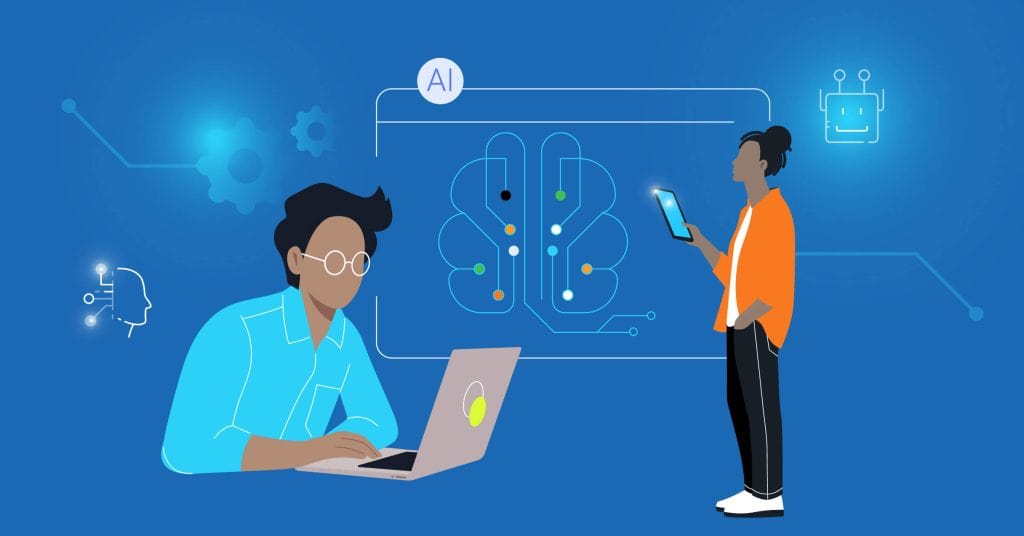
How AI impacts Gen Z in the workplace

How to Manage Different Generations
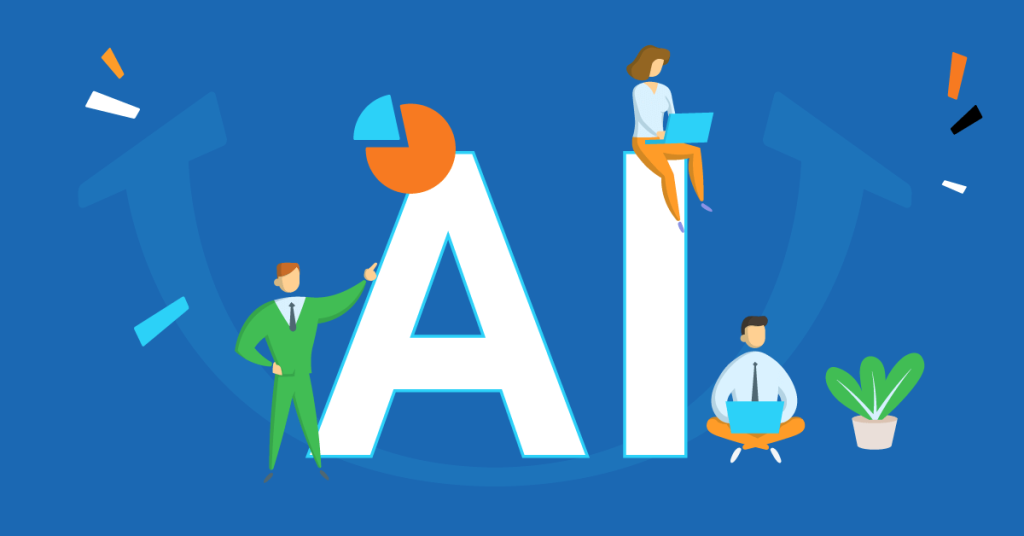
Can you teach an old dog new tricks?
More episodes we think you’ll love
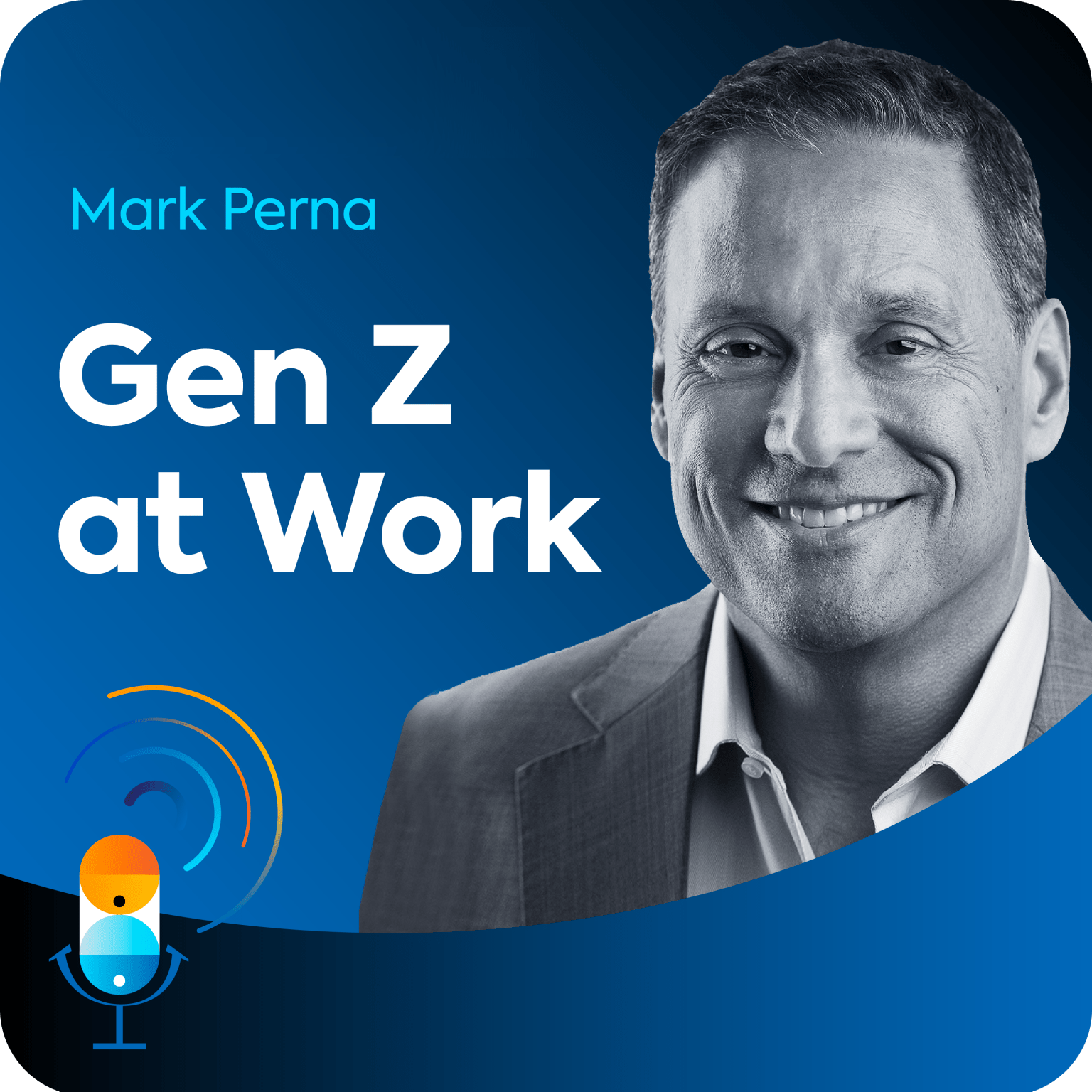
What are the biggest truths and misconceptions about Gen Z in the workforce? What are their strengths and how can managers adapt their leadership style to unlock the potential of the next generation?
In this episode we talk to Forbes contributor and generational expert Mark Perna, to explore how businesses can make the most out of a multi-generational workforce, why Gen Z is the ‘benchmark’ generation, and what we can expect from the talent of tomorrow.
Go to episode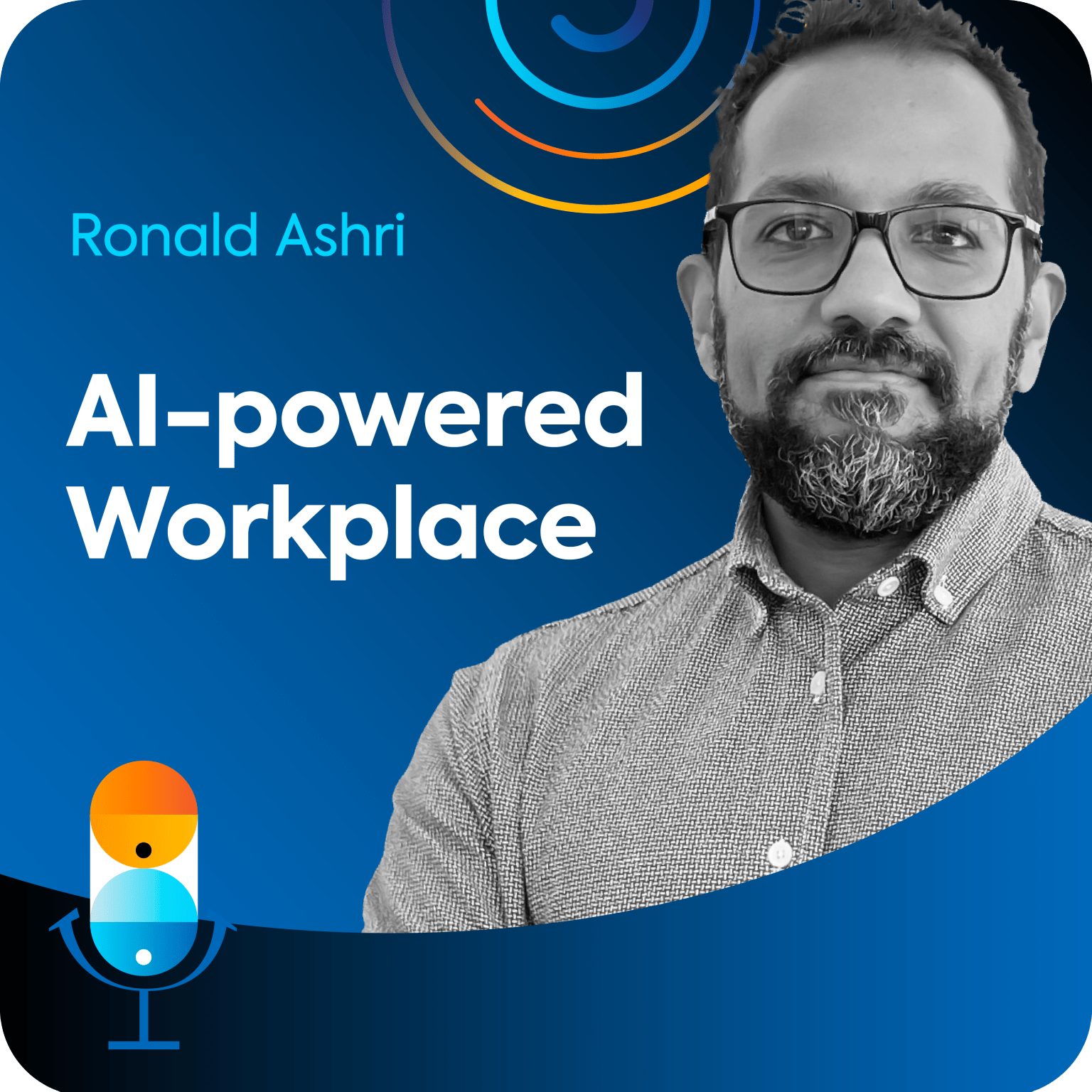
What’s on the horizon beyond ChatGPT? How can you prepare for AI-led digital transformation? We sit down with Ronald Ashri to discuss everything from employee privacy to rethinking how teams are trained and emerging new AI-related roles (prompt engineers?!).
Go to episode
What are the 3 power skills every professional needs for the future? How do the human skills employees build in their personal lives benefit the workplace? Educational expert and author Dr. Michelle Weise explains how rapid technological innovation is demanding a change in the way we approach learning and work.
Go to episode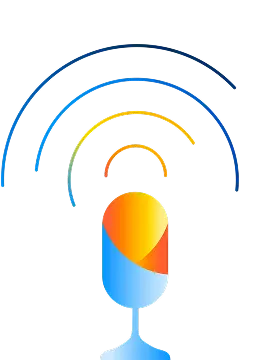
Never miss an episode! Get every new drop right in your inbox
By clicking the Subscribe button, you accept and consent to receive the type of content mentioned above. Please review the TalentLMS Privacy Policy for further information.
Full Episode Transcript
[00:00:00] Host: Welcome to Keep It Simple, a podcast where we’re challenging business and leadership experts to cut through the noise of the corporate world and get to the bottom of what makes the workplace actually work. I’m your host, Mina Vogia. Keep It Simple is brought to you by [00:00:30] TalentLMS. The training platform built for success and designed with simplicity in mind.
[00:00:36] Together, let’s uncomplicate what makes a winning workplace. You can find out more at talentlms.com.
[00:00:47] On today’s episode.
[00:00:49] Eliza Filby: So they recognize these two knowledge gaps and also recognize the really critical way of bridging the generational gap is learning from each other. Rather [00:01:00] than have these kind of like, right, get to like young people kind of lessons or get to appreciate older people lessons, it’s actually, can you learn from each other?
[00:01:08] And that’s where the relationship grows. That’s where the respect grows. That feels less forced.
[00:01:16] Host: With as many as five generations in the workforce, how are managers having to change the way they communicate, train, and lead? We’re speaking to Dr. Eliza Filby, author, historian, and generational expert who helps businesses get to [00:01:30] grips with generational intelligence.
[00:01:32] We talk about why ageism is the prejudice we think about last, unpack the values and expectations of each generation, and what this all means when training teams. Stay with us.
[00:01:51] Hi Eliza, thank you so much for being here with us today. How are you doing?
[00:01:56] Eliza Filby: Pleasure. Very well. Very well.
[00:01:58] Host: So, Eliza, a recent [00:02:00] survey revealed that more than 8 in 10 global leaders recognize that multigenerational workforces are key to growth, yet less than half of companies include age diversity in their DEI initiatives.
[00:02:13] Why do you think companies recognize the trend but don’t act on it?
[00:02:18] Eliza Filby: I think it’s a great statistic, by the way. And I think it’s at the heart of it is a recognition that you need for any kind of dynamic business, that it has a one eye on the future, one [00:02:30] eye on, I guess, the present and experience and expertise that you need both young and old within your
[00:02:38] workforce to be pulling together, and you need that entrepreneurial spirit, disruptive spirit that inevitably comes with being young, right? The whole point of being young is that you question the status quo and you bring with that a new energy and new zeal. But you also need the experience, the understanding of precedence, [00:03:00] the understanding of what’s gone before that depth of expertise.
[00:03:03] And I think you need that, that co-joining of that entrepreneurial and experience coming together in a time where the world is changing at a faster pace, more than ever. We talk about disruption now, and it’s almost like disruption bingo, but in business, I think we really need to understand that the only constant is change.
[00:03:23] And I think it’s also true because of demographics, you know, people are working longer, people are more [00:03:30] appreciative of the different life stages we all now go through, perhaps how that impacts us as mothers and fathers, as daughters and sons, as being young or old, as building wealth or sustaining wealth or retiring, you know, we are just more conscious of the life cycle and how it impacts our jobs.
[00:03:48] So I think there’s all sorts of reasons why. And yet, as you pointed to critically, why is that not being taken, given due consideration? Now, first of all, I don’t necessarily always think [00:04:00] that just because it’s not a DEI initiative it’s not being addressed or not being recognized or initiatives aren’t being pushed through.
[00:04:10] A lot of companies that I deal with and I work with companies across the globe. Don’t necessarily see age diversity as the issue. They frame it differently. That’s perfectly legitimate. I think though it’s also reflective of the fact that we’ve had a big conversation in the world in the last four years about [00:04:30] difference and integrating difference in the workplace and appreciating difference.
[00:04:33] And that’s, I think, focused quite rightly on gender difference, racial diversity, increasingly neurodiversity. And a lot of companies that I know are gradually going, do you know what, actually age is a really important thing as well.
[00:04:48] Host: I really appreciate how concise you are in your answer, and you’ve given us a great scope and a great place to start off from.
[00:04:56] I do want to take you back to one of the things you just mentioned. You [00:05:00] said that now a lot of companies sort of phrase it differently. They don’t really refer to ageism as ageism. How do they phrase it differently? And does that affect how people go about dealing with it?
[00:05:15] Eliza Filby: That’s a great question.
[00:05:17] Because if you frame the question, that quite often conditions the answer. If you see it as a problem about young people, young people being lazy, entitled, not willing to work hard, been over parented, you know, [00:05:30] that kind of, you’re immediately Seeing at it through a difficult, disjointed, prejudicial lens and trying to coerce young people into our ways of working, our ways of being, um, finding the right people that fit our values.
[00:05:48] That’s all true, but that also has a limit. I think a much healthier way of examining it is how our attitudes, behaviors, values around work [00:06:00] changing. How have they changed in the, in our workforce? How is our workforce made up of different generational life and lived experiences, different life stages, different points?
[00:06:13] How is that impacting expectations around retirement, pay, benefits, management style, work life balance, hybridity? And I think as soon as you see it in that, context, it’s a much healthier [00:06:30] framing because what we’re understanding is there’s no right way to do work. There’s no right way to understand and appreciate and be loyal to your company.
[00:06:37] There’s no right way of being in the office or sending an email is to actually we’ve all been conditioned by a set of cultural, economic, sociological contexts, and that shaped how we do things. And it’s not about pitting one generation against each other, one another. It’s more about understanding. We are seeing a really important evolution in [00:07:00] work and the role that it plays in our lives and how can the best companies keep up, but also not just pander to young people, but integrate the changing set of conditions that are happening for all their workers,
[00:07:13] not just the young.
[00:07:14] Host: So your answer is sort of leading into the next question I have for you that has to do with the stereotypes that a lot of different generations are dealing with, and you brought up some examples of the stereotypes that younger generations are dealing with. [00:07:30] So when it comes to the older generation, Do you think there are certain misunderstandings about the younger generation and vice versa?
[00:07:39] And is it up to the companies to sort of try to break those down?
[00:07:46] Eliza Filby: Wow, there are so many ways to answer that question. The first I think important thing to say is that generational categories are generalizations, right? So it’s not about going, Oh my God, you’re such a boomer. Oh my [00:08:00] God, you’re such a Zer.
[00:08:01] Oh my God, you’re such a Xer. It’s more about understanding, for example, the level of formality within the way that baby boomers work has been conditioned by, you know, the technology they use, they went from, you know, having, they entered the workplace when there was a whole army of typists that type formal letters, they went into, you know, a context where email was still written as a letter, you know, [00:08:30] that they, went into workplaces where there was still very much hierarchy and surnames used formally.
[00:08:37] And contrast that with a Gen Zer who’s grown up with a smartphone in their pocket, with access to the world’s information at their fingertips, who are not surprised, impressed, or going to trust everything you say to them because they have grown up with the world’s information in their pocket who don’t just live by one salary alone because they’ve grown up with the world’s marketplace in their [00:09:00] pocket.
[00:09:00] They’ve also like millennials grown up in an environment where education was believed to bring certain rewards in the workplace and it hasn’t yielded them whilst costing ever more not just the individuals, but also the families that chiefly the parents, they’ve grown up in a context where work has not paid. Wages haven’t bought you, particularly in both white collar and blue collar what they bought boomers and Gen X. So, you know, there’s a, there’s [00:09:30] a really important educational piece, which I always start with is okay. You may say, why can’t Gen Z pick up the phone? Well, let’s remember, let’s remember they grew up in a time where they answered the phone as FaceTime.
[00:09:44] They grew up in a time when they didn’t have what certainly older millennials, Gen Xers, and boomers had when they wanted to call their friends, which was phone a landline, speak to their friend’s parents, and then eventually get to speak to their friends. And the reason that’s important is that creates a certain level [00:10:00] of social conditioning, cultural conditioning, Which means that when those older generations entered the workplace, they had no problems answering the phone in a formal capacity.
[00:10:08] Whereas Gen Z genuinely do, genuinely find it anxiety-inducing when their boss phones them in a normal telephone call, do not answer their voicemails in the same way that older generations do. How have we evolved in certain ways and how are we all essentially not [00:10:30] generational categories, but a product of a certain time.
[00:10:33] Now that’s not to say that, you know, boomers can’t use AI, and Gen Z are naturally good at it. I think we need to really sidestep those assumptions because actually really increasing data suggests that older generations are more interested and, find it much easier to critically evaluate the output of AI than younger generations, for example.
[00:10:54] So we need to sidestep those stereotypes, but it’s about getting over that massive [00:11:00] hump that we all have. I think post 35 is that everything that young people do feels weird, alienating, and quite often, in a work context, wrong. And, likewise, anyone I would argue under the age of 30 finds anyone over the age of 40, just slightly stuck in their ways, slow at adapting, and with very different sets of priorities.
[00:11:23] And part of that is down to being a different life stage. And a lot of it is down to having grown up in a different time. And I [00:11:30] think if we can both, you know, All different generations in the workplace, just understand where the other is coming from. We can find, we widen our lens and find that common ground.
[00:11:40] And often, that’s the real starting point for building that sort of intergenerational communication and bridging those generational gaps.
[00:11:52] Host: It’s really interesting because a recent survey showed that 46 percent of Gen Z employees prefer asking [00:12:00] AI about work-related questions rather than their colleagues or managers, which I found mind-boggling because you can just, especially if you’re working in an office.
[00:12:13] You can go right up to someone and ask the question, ask your manager, ask them to guide you. And yet AI is just easier.
[00:12:24] Eliza Filby: Yeah. So there are a couple of reasons why number one is a fear of getting it wrong. You [00:12:30] can get it wrong with AI. You feel less, less stupid for asking stupid questions.
[00:12:35] And that’s a consequence of growing up in an educational culture where you were. You were kind of overly focused on exam success and basically denigrated a failure if you did not succeed in a certain way and actually what that’s meant is a less resilient generation with less real-world experience and cultivated in a [00:13:00] sense. I have to get this right kind of way and I think that’s actually been really damaging for young people and I think there’s a real argument for saying we’ve over-educated and underskilled are under 30s, globally, by the way, because of the expansion in higher education. I think the second point obviously is the way in which Google has replaced, you know, grandma for all sorts of worldly wisdoms, whether it’s, you know, weaning a baby or, you know, asking for some sort of insight into, I don’t know how [00:13:30] you change a car or a tire.
[00:13:32] I think it’s also a reflection of a sort of lack of confidence in their communication skills. One of the things that I’ve done a lot of work on with companies is helping them realize the consequences for their young people of growing up in a digital native environment and particularly the impact of COVID where those soft skills have not been nurtured.
[00:13:55] So I’m talking about how you answer a phone, how you make eye contact, how you do a [00:14:00] presentation, how you have difficult conversations, how you listen to things you don’t want to hear. For, I would argue anyone under 25, those skills have not been nurtured, and yet in the age of AI, they’re going to be needed even more than ever before.
[00:14:14] So actually, one of the things that companies, I think, can do to really bring out the best in their young people, encourage and bridge those generational divides, but also help humans outpace AI, is really nurturing those soft skills. [00:14:30]
[00:14:30] Host: That reminds me of something you’ve mentioned in the past, this really great example where you encouraged cross-sharing of knowledge and experience between generations, where you had Gen Zers giving boomers tips on social media and in reverse boomers helping younger employees with in-person skills.
[00:14:48] Is that ringing a bell?
[00:14:49] Eliza Filby: Yes. Yeah. So I work with one law firm and this has been, we’ve rolled this out in several different companies now who recognized that their Gen Zers didn’t want [00:15:00] to answer the phone, couldn’t answer this phone, felt really stumped, particularly talking to clients over the phone.
[00:15:08] And, you know, for a lot of people over 35, that’s just how business is done, particularly in sort of immediate situations. And, equally though, they had a real dearth of experience, understanding, and sort of appreciation for social media. What it could do for [00:15:30] internal comms, what it could do for recruitment, what it could do for just shedding a light on, on, on, on also marketing like to clients and also obviously to employees. So, so they recognize these two knowledge gaps and also recognize the really critical way of bridging the generational gap is learning from each other rather than have these kind of like, right, get to like young people kind of lessons or get to appreciate older people lessons is actually,[00:16:00]
[00:16:00] can you learn from each other? And that’s where the relationship grows. That’s where the respect grows. That feels less forced. And this particular firm took it upon themselves to rope in their young recruits to teach their partners and business services about social media. Being an ambassador for the company on social media, what social media was saying about the firm, what, what, what video content and how that was [00:16:30] evolving in terms of recruitment.
[00:16:31] And it was a real eye opener for the partners because the partners and business services hadn’t really dug seriously deep. They had a nice shiny website, which recruits would look on, but actually would then go into look on Glassdoor Fishbowl or TikTok. Likewise though, they also recognized that there was a real breadth of experience, particularly within business services.
[00:16:54] This particular firm had a very much, a kind of business services, was a lot [00:17:00] older in their demographics and they recognized that they had knowledge to share with their trainees and they had, you know, a lot of sessions where these business service units were helping their trainees in basic communication skills over the phone and what to say, what to do, how to do small talk, how to literally generate the kind of conversations that, you know, oils, the wheels of business [00:17:30] and, It was a brilliant example that I’ve actually rolled out and, and, and helped businesses implement in different sectors because it really was an effective bridging of the generational gap.
[00:17:44] Host: And I feel like that can be applied in a lot of different cases as well.
[00:17:49] Eliza Filby: Yeah. I mean, I think AI is going to be a perfect example of this because you need as a business, the critical evaluation skills of your experienced [00:18:00] employees to test whether what the AI is churning out. is complete rubbish or not.
[00:18:06] And we know, you know, at a basic level, if you have a certain expertise or knowledge in a certain area and you put some request in into chat GPT, you will immediately know whether that is good or bad. And, so you need as part of the rolling out of AI deeper and deeper into what we do and how we create, you know, whatever it is, whether it be [00:18:30] letters or programs or systems or whatever, knowing what looks right and wrong is really important.
[00:18:37] However, you also have need of a certain digital savviness that I’m not going to say all young people have, because that’s not always true, but let’s just say the age at which you are exposed to certain technology quite often determines your use savviness and integration of it. And so if you’ve had a smartphone in your pocket since you were [00:19:00] 13, you have a certain level of digital savviness around smartphones that someone who’s had a smartphone in their pockets at 29, which I did, does not.
[00:19:08] And, by the way, we talk about Gen Z at the moment. There’s a generation coming through already after them, Generation Alpha, who are already using chat GPT in their school work will be using it throughout their school and university years I’m sure will be using it, you know, deeper and deeper into every part of their life [00:19:30] and be integrating it into every part of their life.
[00:19:32] So the time they enter the workforce, they will probably be using generative AI for around seven years, and we need to really start preparing the ground and doing the groundwork for that generation. Who, by the way, have also grown up shouting at Alexas and on-demand TV. So we’ve got a really high level of sophistication and digital savviness coming through the ranks very soon.
[00:19:54] And so I think we just, what I really appreciate when it comes to AI is like, how [00:20:00] can we recognize that we’re going to need the experience and the entrepreneurial working together? And I believe that’s the only way you can really successfully integrate AI into your business. into a business. And that means bringing out the best in your multi-gen workforce.
[00:20:17] Host: We’ll get back to our chat with Eliza in a moment. But first, here are some small, simple things to consider when it comes to training a multigenerational workforce. Different generations mean different learning backgrounds, [00:20:30] communication styles, competencies, and preferences. So personalized learning paths to reflect all of these needs are crucial for training that’s inclusive of everyone.
[00:20:41] From the Gen Z being onboarded to the Gen X who is reskilling. With easy-to-use learning management systems like TalentLMS, you determine how each employee receives their training, making it easier to cater to all and having a diverse workforce in terms of age, isn’t just a problem to overcome. [00:21:00] It’s a resource.
[00:21:02] Think of how you can use the smarts of Gen Z, Gen X, Millennials, and Boomers to teach and learn from one another. And finally, beyond completing courses in private, encourage collaborative learning. Strategies like mentoring, discussion boards, and even skill swaps can create a more interactive training environment.
[00:21:22] And bridge the so-called generational gap.
[00:21:27] You’ve mentioned before that we need to [00:21:30] let go of this idea that age equals stage at work. So this idea that a 50-year-old could be coming in as an apprentice wanting to switch careers, like The Intern with Robert De Niro. I don’t know if you ever watched that movie. And perhaps a Gen Z leader taking on a team of 40.
[00:21:49] 40-somethings. Is there an argument here to say that in order for these cultural changes to be made, it’s not just our workforces that need to encourage it, but [00:22:00] also the culture as a whole, whether that’s media or the public sector?
[00:22:05] Eliza Filby: Yeah, that’s a great question. It’s a great question. And fundamentally, we need to recognize that the workplace that determined the late 20th century is no more.
[00:22:17] Principally because that idea of your education, your working life, and then your retirement create this like three-stage life. And it was predicated [00:22:30] on men going to work and women staying at home, right? Because that three-stage life life made sense in that family setup. And obviously, that is no longer the reality, which is why, you know, you get Melinda Gates saying quite rightly, we’re sending our daughters into workplaces built for our grandfathers.
[00:22:47] And she’s right, because the 21st century looks incredibly different. As you already alluded to, we cannot make assumptions about women in their thirties having kids. We cannot make assumptions about people in their sixties [00:23:00] retiring. We cannot make assumptions that people in their twenties do not have families to support or parents to support.
[00:23:07] We cannot make assumptions that really that someone wants to be a manager in their forties or that, we cannot have people in their twenties managing people in their sixties. So I think for so long we had this hierarchical ladder, right? Career ladder view of work. [00:23:30] And I think now it’s more about a sat nav approach. It’s much more individualized. We are not fixated, I think as much on the destination. We want a journey. We want a journey that’s fulfilling. That is about self-development. That is bespoke. That maybe has stops along the way. That integrates our, our caring responsibilities, which for men are increasing [00:24:00] faster at a rate than for women, because women having fewer children and men, particularly fathers, but also sons are having to step up, not just helping raise children, but also looking after their elderly parents.
[00:24:12] And, and, you know, so we are now having to, as companies think much more in bespoke ways about how can we help people. Integrate their home lives into their working lives. That’s where the new loyalty comes from. It doesn’t come [00:24:30] from higher salaries, I would argue. And equally though, that’s not to say pay good management, good benefits are not, are not primary, but I think recognizing how the world is changing and how people’s home life is changing is really critical.
[00:24:50] And that’s why where there’s no return to the five day working week. in the office.
[00:24:57] Host: Now, I do want us to talk a little bit about [00:25:00] training different generations. So from your experience, what do you find are the key differences in each generation’s preferred learning style?
[00:25:09] Eliza Filby: So I think the thing I would preface this question firstly, is just talking about neurodiversity and the importance of actually all of us being different in how we consume things, how we learn things, and how we apply things.
[00:25:22] I’m a visual learner. My husband is a physical. He likes things kind of set out and can see them type of learner. So we’re all different [00:25:30] types of learners. But there are generational differences. And I think the easiest way to think about it is how do you consume news? Now, my mother still buys a printed newspaper and will read it, the physical product from cover to cover, and then tell us what she thinks what’s going on in the world.
[00:25:50] Whereas I obviously pick up my phone, flip open an app, click on a couple of articles, half read them, and rant at my husband about what I think is going on in [00:26:00] the world. And I think what that sort of reflects is you’re seeing the evolution of declining attention spans, right? I’m afraid that’s happening to us all.
[00:26:14] But Gen Z apparently have an attention span of just 8 seconds. Millennials, by the way, have an attention span of 12 seconds. The shift, obviously, in content is towards more and more short-form content. So there’s obviously that [00:26:30] need for visualization video, that need for constant stimulation, getting to the point, that need for individuation.
[00:26:40] You know, what our phone has, has, has drummed into us is the idea of feeding me what I need when I need it. And that’s going to become ever more of an expectation with AI. And so that’s going to shape and transform L& D because essentially that whole idea of not here’s a workshop, go and learn the [00:27:00] stuff, and then you apply it in your job is what do I need to know as, and when I need to know it.
[00:27:06] And so that might create a more of a surface level learning, but also in a more immediacy and relevance. So I think there, there is, there’s a really important dilemma for L& D providers is how can I create in depth expertise? Cause that’s what we need. We need people to be experts and really good at [00:27:30] what they do.
[00:27:31] But also how can I create an as and when relevant learning that feels dynamic and feels bespoke and feels, you know, helps flow the business along and, and, and productivity along. I think also, as I said earlier on the need for soft skills, particularly amongst young people, that need of actually, in the age of AI, what keeps us human, how can we create better teachers in the workplace, I think is really [00:28:00] important and making us all better listeners as well.
[00:28:04] I mean, that’s listening. It’s been something that in the workplace, and I think society more broadly has been a declining art. I think also just that emotional intelligence, people talk a lot about emotional intelligence, but it goes back to my point about care is that, and I don’t think companies should be in the business of teaching people how to care, but can we free up systems and measurements [00:28:30] and data and free people’s time to care. You know, we’re so rushed. We’re so firing off emails and messages and instant productivity data. You know, we’ve, we’ve roboticized work and taken the human out of it. And yet in, again, as we go deeper into this AI world, we’re going to need to rehumanize the workplace because that’s the really good thing that humans are good at.
[00:28:57] And let’s remember that business [00:29:00] is essentially about human relationships. We invest, we do business with the people we like.
[00:29:06] Host: That is such a big factor. And you know, how many times do we hear someone say, Oh, it’s not personal. It’s just business. And we, we need to go back to remembering exactly what you said that business is a very personal thing.
[00:29:22] And you do business with the people you like.
[00:29:25] Eliza Filby: Yeah. And that’s a dangerous thing, by the way, because, you know, unconscious bias, and we know [00:29:30] all of that. And the danger of that, we like people that are like us, you know, that’s, and there’s a great danger in that. And we are in the process, you know, as a society, of opening up that conversation, it’s a really important one.
[00:29:43] But I think very quickly, I speak to a lot of, you know, senior partners, managers, you know, C suite, and they say, why can’t young people do this? Why can’t, why are we struggling with this people? Why we’re not recruiting these people are lazy, entitled, yada, yada, yada, yada. And [00:30:00] and that’s great, but one of the things that I really want listeners to recognize, and I’ve developed course materials for this specific purpose in mind, it’s not about just managers trying to contort themselves into managing Gen Z.
[00:30:23] I think there’s a really big mistake potentially for businesses if they just fixate on young people and how they [00:30:30] can please them. And so one of the things that I developed was a course specifically helping Gen Z navigate the multigenerational workforce and recognizing that because of COVID because of, you know, smartphone culture and because of the algorithm, like they have not been taught to listen to things they don’t like, they have not really any understanding of workplace etiquette.
[00:30:54] I’m really passionate about helping young people realize that managing a multi [00:31:00] generational workforce will be the making of them. And it’s not about being unduly deferential because life’s not like that anymore. It’s about recognizing what slight adjustments to my lens, my perspective, do I need to make so that I, I don’t just like code switch I’m myself, but essentially I can navigate this workplace.
[00:31:24] And so I have a course helping Gen Z manage the multigenerational workforce because I think that’s the [00:31:30] key thing that a lot of companies are missing. They’re fixating on helping their C suite or their millennials manage Gen Z. They should also be focusing on, you know, as soon as they’re through the door, helping Gen Z navigate a multigenerational workplace.
[00:31:45] Host: And now as we’re going to be wrapping up, we’re coming up to the biggest, I’m usually told it’s the biggest, well, for us, it is the biggest question, but it’s usually the most complex. And we try to make it a little [00:32:00] difficult for you guys. So in one sentence, how can we keep it simple when it comes to managing a multigenerational workforce?
[00:32:09] Eliza Filby: Recognizing that it’s about reciprocal respect. It’s about reciprocal learning, and it’s about coming together to appreciate our differences, but recognizing we need entrepreneurial spirit and experience working in tandem.
[00:32:28] Host: Eliza, thank you so [00:32:30] much. It was so amazing having you on the show. Thank you for taking the time with this heat and on vacation.
[00:32:38] We really appreciate it.
[00:32:40] Eliza Filby: It’s a working vacation. I’m very much doing that bleisure. If you heard that term, bleisure, business and pleasure.
[00:32:53] Host: Thanks for tuning in. In the next episode, we’ll be looking at how to train our teams in a remote world. [00:33:00] You can find Keep It Simple on all podcast platforms. Be sure to subscribe so you don’t miss an episode. This episode of Keep It Simple was brought to you by TalentLMS, the training platform built for success and designed with simplicity in mind.[00:33:15] For more resources on today’s topic, visit talentlms.com/podcast [00:33:30]
Train your people. Measure results. Drive growth.
TalentLMS gives you the tools to supercharge every step of your training.

